For most podcasters, publishing new episodes is the final step before moving onto something else, but there’s a lot more you can get out of your existing content. Optimise your podcasts and reach a whole new audience with podcast transcriptions.
What Are Podcast Transcriptions?
Podcast transcriptions are a way for you to turn audio in text. Most people do this for a number of reasons, such as:
- Accessibility: Make content accessible for people with hearing difficulties.
- SEO: Improve your Search Engine Optimization and podcast traffic.
- Shareability: Easily make your content quotable and shareable across social media.
Essentially, podcast transcriptions are a way for you to get more out of your content, but turning audio into text can be a very tedious process. If you don’t feel like spending long periods transcribing audio, then we can lend a hand!
Why Transcribe Podcasts?
As mentioned, turning your podcast's audio into text has a few advantages. The main reason why it's worth investing time is to reach a new audience. By making your episodes accessible, more people can find and view your content, such as:
Deaf or Hard of Hearing

The deaf and hard of hearing require transcripts to engage with your podcast because it is the only way for them to connect with your material.
Some deaf and hard of hearing people rely on lip reading or sign language to understand what people are saying which of course is an element that is removed from podcasting. Making your podcast accessible to everyone will increase the popularity of your podcast and expand your audience reach.
Language Learners

Transcripts are vital for people learning the language that your podcast is in. If a non-native English speaker is listening to your podcast there will inevitably be words they don’t recognise and things like accents or colloquialisms will sometimes need reinforcement from a transcript.
Opening up your podcasts audience to include new language speakers will definitely expand the reach of your podcast and make your podcast appear to be more accessible.
Auditory Processing Issues

Audience members who have difficulty differentiating sounds or struggle to understand what sounds are without seeing their source often avoid podcasts.
Creating transcripts will help them to understand what’s going on in the podcast, what sounds are and who is talking. Writing good, clear transcripts will help those with auditory processing issues to access your content.
Increasing Your Reach with SEO
Creating transcripts helps with your search engine optimisation and discoverability on places like Google. If you create useful transcripts laden with your keywords, then you’ll find that your podcast will climb search engine results much quicker. The higher your podcast gets on different search engines, the more accessible your podcast will be and therefore the more popular your podcast will become. For example, searching for the Potterless podcast brings up loads of links around the show.
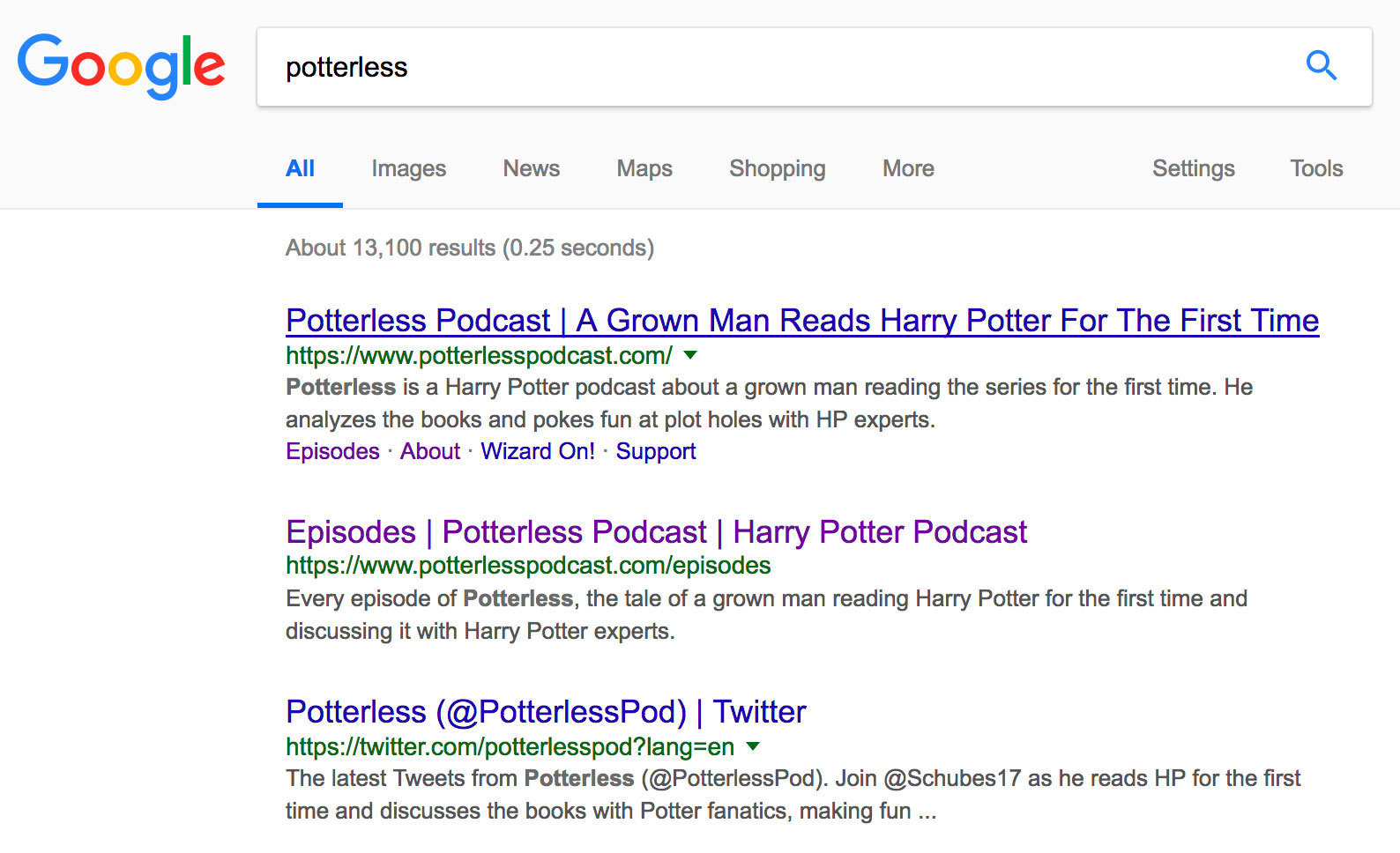
Organising Content for Quick References
Podcast transcriptions help you grow and reach new people, but they also make it easier as a source of reference. For example, if you can't remember what you mentioned in a previous episode, just do a quick search through your transcript. If you correctly file your transcripts and make them easy to find then you always have something to refer back to and your future content will be improved.

How to Transcribe Podcasts
There are a few different ways you can transcribe your podcasts that differ in skill level, effort, and price. Firstly, you can purchase a monthly service that automates your audio to text. Then there's outsourcing to professional transcribers (like us!). Finally, you can always do it yourself 'word for word', but that might be a bit too difficult, especially if you're pressed for time. Whatever you choose, it's best to way up the options.
Podcast Transcription Services
Using software will mean that no transcription skills are required from your team, therefore, no time or effort has to be put into transcribing from team members because a software programme will do it for you. They are not always known to be accurate so often corrections do need to be made and if you have a particularly strong accent or unique regional dialect then it may struggle a lot more. There are various software programmes available which all have different pricing structures and functionalities. Here are a few:
Trint
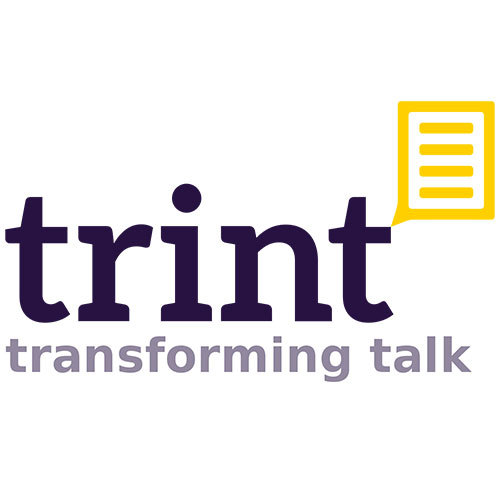
Trint was set up by Jeff Koffman a reporter, interviewer, foreign correspondent, and war correspondent for several prestigious news outlets. With over 30 years of experience under his belt, it's fair to say that Trint contains some of the very best technology to get you some of the best results.
You are able to get a free trial which gives you up to 30 minutes of free audio transcription. Their most expensive paid plan is the supercharged plan which costs £92/pm and gives you 10 hours audio transcription.

Descript uses Google Speech to transcribe podcasts, making it one of the most advanced transcription services. If you don’t do much transcribing then they have a Descript free package (costing 12p per minute).
For those of you that do a lot of transcribing then their most advanced package is their standard package which costs 5p per minute of transcriptions which includes full audio editing functionality, 30 minutes of free transcriptions, and web collaboration.
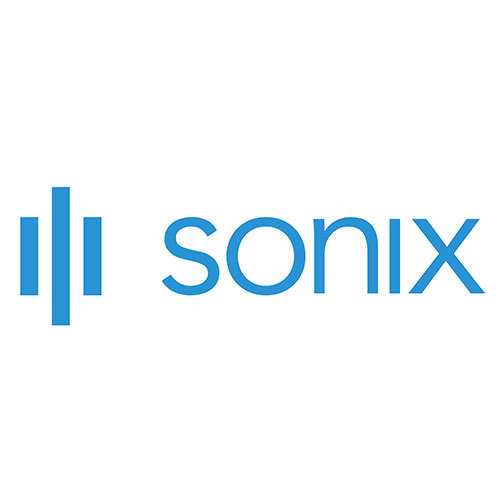
Sonix transcribes 30 minutes of audio in 3-4 minutes. There are correction functions to change any mistakes and highlight strikethroughs to draw attention to important info to cut out any redundant stuff.
Sonix offers a 30-minute free trial with automated transcription, audio, and video editing. Their most expensive plan costs £3067/py and gives you everything from the lower plans, plus, advanced admin controls, account audit logs, and detailed file event tracking.
Professional Transcribers
More often then not automated software just doesn't quite cut it. Whether that's because it's inaccurate or doesn't understand your accent, then you can always hire a professional transcriber to do your transcripts for you. You will eradicate the likelihood of inaccuracies and you also have a point of contact to discuss any queries with. A lot of transcribers have been doing it professionally for years so you know you will be getting a quality service. There are various sites you can use to source human editors. Here are a few:
GoTranscript
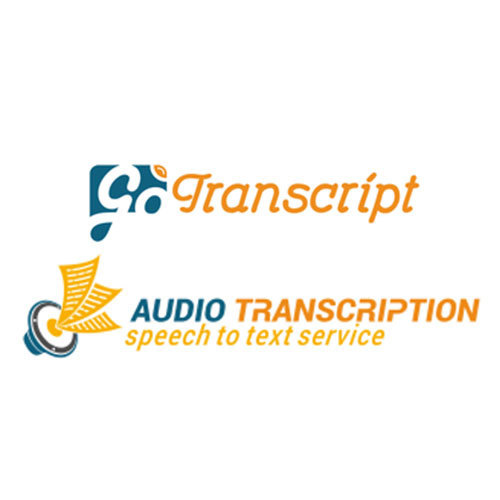
GoTranscript employs over 20,000 transcribers! Their cheapest package is the relaxed 5-day service with up to 180 uploaded minutes which costs 69p a minute, allows you to upload 180 minutes of audio, and you’ll get your transcript within 5 days.
Their most expensive package offers 6-12 hour service with 720+ minutes of uploaded audio, but costs £1.54 per minute! Upload over 720 minutes of audio and transcripts are sent after 6-12 hours.
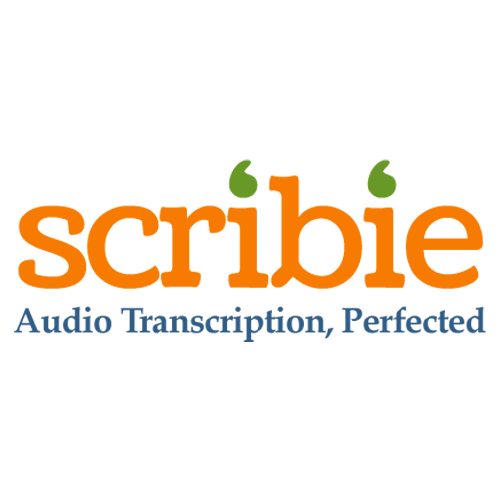
Scribie uses a 4 step transcription process to ensure quality transcriptions. They’re transcribed, reviewed, proofread, and then finally quality checked. This leaves very little room for error and means your transcripts will be near perfect.
Their cheapest plan is their budget package which costs 46p a minute. You will get your transcript within 5 days on this plan. Their most expensive package is their rush plan which costs £1.84 a minute. You will get your transcripts within 12 hours on the rush plan.
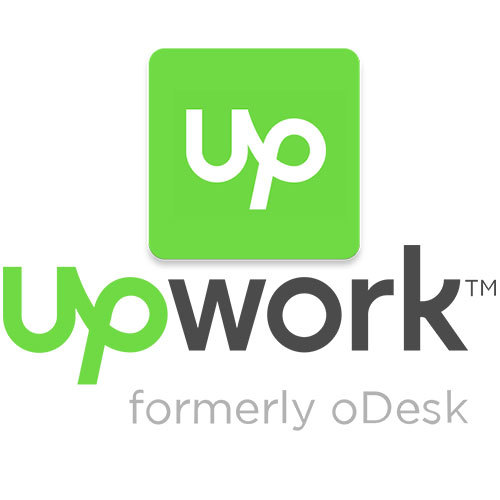
Upwork puts you in contact with freelancers. They don’t specialise in transcribing, but there are loads of professionals available to help you out. Upwork is a paid subscription service, then you can hire freelancers.
Upwork has a free plan which gives you verified freelancer work history, reviews, instant freelancer match, and built in collaboration tools with easy payment. Freelancer prices range from between £7.67/ph to £49.84/ph, so skill level, experience, and compatibility vary from freelancer to freelancer.
Transcribing Podcasts Yourself
If you don’t have the funds to pay someone else to transcribe for you or you don’t think transcribers or transcription software will work effectively for your podcast then you can do it yourself. Transcribing takes quite a long time so it will slow down your workflow and will slow down the speed at which you can plan, record, edit and release new podcasts.
Transcripts also require a specific style that can be difficult to get to grips with if you don’t have prior experience of writing transcripts. Even though it is the cheapest option it might not be the best due to time restrictions and transcript quality. It’s definitely worth paying someone else and having professional standard transcripts available for your listeners. If you do however decide to do it yourself then we’ll share a few tips in this guide to transcriptions to tell you how to make them the best you can.
Fan or Volunteer Transcriptions
A lot of podcasts find fans taking transcription writing into their own hands. This is certainly a cost-effective approach to transcribing but it is not necessarily the best. Finding fans or volunteers that are willing to transcribe for you to a professional standard and on a regular basis is low especially if there is no monetary gain or incentive for them. If a fan has taken it upon themselves to write your transcripts this proves that there is a desire from the fans to have transcripts and therefore this is something you should definitely be providing as it will most likely improve your listenership.

Fans or volunteers may not have the correct skills for transcribing and therefore your transcripts will look unprofessional and therefore bring down the quality of your podcast. It is also difficult to enforce time frames with fans or volunteers because they are doing it out of their own goodness so enforcing deadlines on them is unfair. This means that some podcasts may lack transcripts, some transcripts may come out a long time after the podcast has been released or transcripts are rushed and poor quality.
If you do find a good volunteer transcriber then make sure you provide them with some recognition whether that be free merchandise, a credit on the podcast or exclusive access to unreleased content. Make them feel loved they definitely deserve it.
What Your Transcripts Should Look like
Adopting a style guide that works for you and is accessible to your audience is vitally important. Whoever does your transcriptions can follow the guide you set so there’s no confusion and also you’ll be safe in the knowledge that your transcriptions provide the correct information to your audience at the correct time.

1. Names
Make sure you put your speakers names in italics with a colon followed by their dialogue. For example:
- Jack: I think the new book in the series is the most exciting.
- Lisa: We definitely learn a lot more about the characters in this book.
- Freddie: I actually think the last book was better, this one just wasn’t as good for me.
- Mikey: Are you completely crazy. This book was amazing.
2. Characters
If the podcasters start playing a different character then this needs to be introduced in the transcript.
- Jack (as Leonardo): Where are you going traveller?
- Lisa (as Toria): I’m on my way to the Salisbury market.
- Freddie (as The Knight): She’s lying, don’t let her pass.
- Mikey (as The Beggar): I believe you should let her pass, if you don’t evil will befall the town.
3. Sound Effects and Music
People who rely on transcripts to differentiate sounds or understand what’s happening will need to know when things other than dialogue take place. A certain noise could be a sign that something’s about to happen or may add context to the piece which you don’t want the audience to miss. These should be written in brackets.
- Lisa (as Toria): I don’t like the look of this place. I think it’s haunted. [A twig snaps]
- Jack (as Leonardo): Quickly let’s run.
- Mikey: Toria and Leonardo run to a local inn and enter through the front door. [A lute is playing]
- Jack (as Leonardo): I think we’re safe now.
4. New Characters That Are Unnamed
It is important that people using transcripts learn information at the same rate as the listener. If a new character appears that doesn’t yet have a name then include them in the transcription with a description of what we’ve already learnt. This can be a description of their accent or what we’ve already learnt in the narration.
- Freddie (as The Knight): The King declares that we will no longer be allowing anyone from outside into the kingdom anyone found breaking the rules will be dealt with accordingly.
- Man with shrill high pitched voice: What about our trading neighbours from the next region?
- Freddie (as The Knight): Only approved traders will be allowed to enter the kingdom
- Woman with thick Cornwall accent: This is against our rights.
Or...
- Sarah Koenig: We spoke to a police officer about what she thought of the crime.
- Police officer: This was the worst crime we’d seen in these parts for a while. We had never dealt with anything like it.
- Sarah Koenig: We also spoke to a local resident who was living on the street at the time.
- Local resident: We were horrified to learn we had been living on the same street at this monster the whole time.
5. Interruptions
Speakers may interrupt each other. This is a normal part of unplanned speech and can often show overexcitement or indicate strong debate which is important information for someone using the transcript to help understand the narrative of the podcast. It’s a good idea to leave a dash to indicate an interruption.
- Freddie: The best character in this book was Brianna, she was –––
- Mikey: The best character was obviously the magic frog Freddie, you are absolutely wrong.
- Freddie: No way was the magic frog the best. He was rubbish. I don’t even–––
- Mikey: Don’t you dare call the magic frog rubbish. He’s a hero.
6. Speech Quirks
Speakers don’t always say the correct things all the time People stutter and mispronounce words. Adding these things into the transcript makes it seem more natural and can indicate shock or surprise. Jokes often come from mispronounced words so it’s good that you let transcript users be part of the joke.
- Mikey: I can’t believe what you just said about the magic frog. Y-y-y-y-you sicken me. I am so…. disappointed in you.
- Freddie: Well I apologise that you’ve put the magic frog on some kind of pedalstool but he’s really not that great.
- Mikey: A pedalstool? Don’t you mean a pedestal? That is so funny, you are such an idiot.
- Freddie: I have dis- let myself down.
Where to Publish Your Transcripts
When you’ve written your transcripts you then need to release them into the world. If you have a consistent place you release them to then your audience knows where they can go to access them.
The most obvious place to post your transcripts is your own podcast website. If you create a transcripts tab then people can click on the transcripts and listen along with your podcast. You can also make them downloadable and shareable to increase your reach.
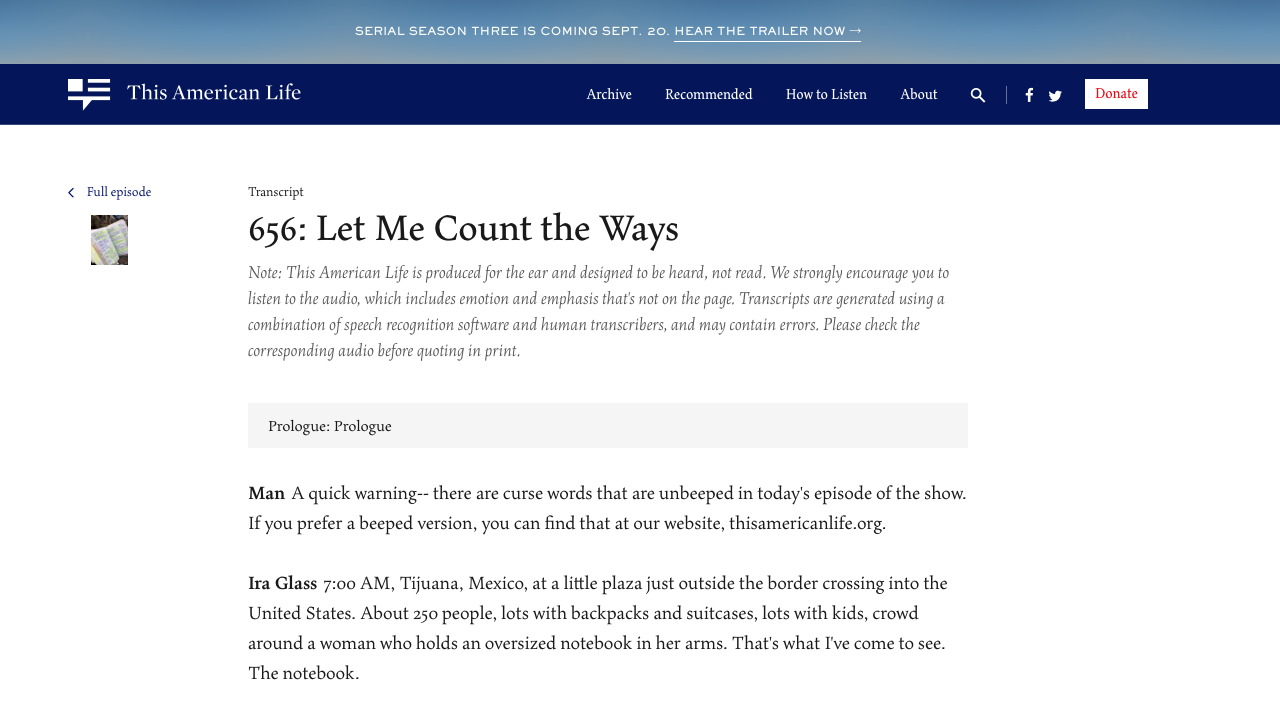
If you don’t have a website for your podcast then it might be an idea to start a free blog on something like Tumblr or Blogger where you’ll then be able to post your transcripts. It is a good idea to leave a link to these sites in your podcast description or social media posts to show listeners where they can be accessed. Tumblr and Blogger both have sharing options to increase your reach. Don’t put the whole transcript in your podcast description as this makes your podcast seem less professional and descriptions often have word limits that you don’t want to exceed.
Hire Podcast.co to Transcribe Your Podcasts!!!
If you’re having trouble transcribing yourself or finding someone decent, then save yourself the hassle and hire our team at Podcast.co. We have a range of professional transcribers available at reasonable rates who will be happy to help you out. Get in contact with us at [email protected] or click the speech bubble in the bottom right corner!









